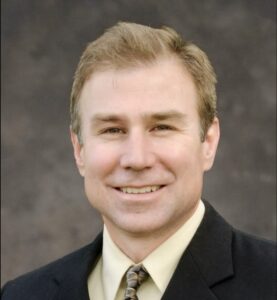
By DR. GARY KEEPES
CATHOLIC HEALTHCARE
Sometimes, it is good to periodically ask questions about our life and what we are doing with it; a kind of self-assessment along the journey. As a Catholic physician, one question that I ask is, what is the purpose of medicine? It would seem to be a matter of practical reason that the goal or end of medicine is health. This thought begs the question; what is health? Health is defined by the World Health Organization as “a state of complete physical, mental, and social wellbeing and not merely the absence of disease and infirmity.” Good health is one of the key basic requirements for human flourishing.
How do we obtain good health? Three factors mainly contribute to good health: genetics, life conditions or situations, and habits. Our genetics play a large role in our health and are largely beyond our control (at least for now). Genetic diseases with a high degree of penetrance are cystic fibrosis, Huntington’s disease, sickle cell disease, beta thalassemia and breast cancer caused by a BRCA mutation – just to name a few. Other genetic tendencies can increase our risk of diseases like diabetes, coronary artery disease and other vascular diseases, and certain types of cancer. We also now know that genetics can play a large role in obesity. So, in answer to the question of nature vs. nurture, nature often prevails.
Life conditions or situations can also greatly affect our health. Examples include living in poverty and not having access to clean water, shelter, healthy food and human affection. That is why we Christians are called to work toward justice for all mankind and to ensure that all have access to these basic human needs. Catholic Charities in our diocese is an organization that is trying to do just that in our small part of the world.
Habits are the one contributing factor to good health that we do have some control over. Most of us know what we should do but, like St. Paul, “do not do the good I want, but the evil I do not want is what I do” (Romans 7:19). The basic advice I give to all patients is common-sense stuff; don’t smoke, don’t drink alcohol to excess, exercise regularly, eat a healthy diet and get plenty of sleep. The difficulty is how to implement this in light of our fallen human nature. The two diets that have the best evidence for preventing heart disease are the Mediterranean diet, which consists of olive oil, legumes, fruits, vegetables, and fish; and a plant-based diet, which consists of vegetables, fruits, whole grains, legumes, nuts, and seeds. A plant-based diet has the added benefits of being good for the environment by decreasing greenhouse gas emissions and reducing the amount of land, water and fertilizers used for agriculture. I encourage everyone to incorporate more plant-based whole foods into their diet, even if you cannot do it 100 percent of the time.
Exercise is another very important habit to develop to improve our health. High-intensity interval training is likely the best way to improve cardiovascular health; however, any activity that increases your heart rate and gets blood flowing to your muscles and brain will be beneficial. Aim for 30 minutes of exercise 3-4 times per week.
Man is a creature composed of body and soul. To focus on the soul and neglect the body is a form of Gnosticism. We all understand the importance of the spiritual life, and I am not downplaying that at all. But I suggest that we also take seriously the care of our bodies. Our human bodies are miraculous gifts from God, and our response should be to care for them as best we can until, God willing, we are called home to dwell in the beatific vision in our resurrected bodies for all of eternity.
Dr. Gary Keepes is a family physician in Petersburg and is the president of the Southwestern Indiana Guild of the Catholic Medical Association. He is currently in the diaconate program for the diocese of Evansville.
